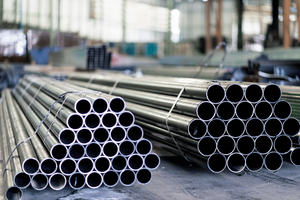The Impact of Quality Control on Black Iron Pipe Prices in the Philippines
الجسم
The Philippine construction and industrial industries are growing fast with government infrastructure programs and private construction driving growth. Black iron pipes, a foundation material for these industries, are very much sought after for their strength and versatility. Their prices, though, are very much affected by quality control. This article examines the effects of quality control on black iron pipe prices in the Philippines through standards compliance, manufacturing methods, and market consumer affinities.
The Role of Quality in Black Iron Pipes
These pipes are widely used for plumbing, gas lines, and structural applications because of their strength and durability against corrosion. In the Philippines alone, where infrastructure development is on the boom, high-quality material demand has increased tremendously. It is of utmost importance that these pipes are strictly qualified to ensure safety and performance.
Quality control not only guarantees adherence to regulations but also affects long-term project costs. Quality pipes, for example, can be more expensive upfront but lower maintenance and replacement costs in the long run. This renders quality a crucial factor to consider for both public and private buyers.
Understanding Quality Control in Black Iron Pipes
Quality control involves rigorous testing and adherence to standards to ensure that black iron pipes meet safety and durability requirements. In the country, regulatory compliance is a significant driver of quality.
Standards and Compliance
These pipes should comply with certain standards in order to be reliable. For example, the Department of Trade and Industry (DTI) has regulations such as DAO No. 19-16, which requires black and galvanized steel tubes to be certified. Adherence to international standards such as ASTM or ISO is another factor that increases product credibility.
Such certification ensures consumers that the pipes pass international standards in safety and performance. Such providers have the liberty of charging more, as buyers value their output to be greater than others.
Manufacturing Process and Material Quality
The production process has a great role in determining pipe quality. A high-grade material such as premium iron or steel produces pipes that have superior corrosion resistance and structural strength. Sophisticated methods like hydrotesting make pipes capable of handling high-pressure situations without leakages.
Though more costly to produce, they also command higher prices due to their superior performance. For instance, hydrotested black iron pipes are stronger and less likely to fail than normal pipes and are thus better suited for high-pressure systems such as gas distribution or sewerage systems.
How Quality Control Affects Pricing
Cost of Production
Fabrication of pipes like these comes with heavy costs. They consist of raw material, labor, energy utilization, and sophisticated equipment. Global commodity prices also influence costs of production. For example, an increase in steel prices can cause a hike in pipe prices.
Also, applying quality control processes like hydrotesting or non-destructive testing contributes to manufacturing costs. But these processes guarantee that the end product is of high quality and adheres to high standards, which enables suppliers to charge more.
Long-Term Value for Consumers
While high-grade black iron pipes are more expensive to purchase upfront, they prove cost-saving over time by limiting maintenance and replacement requirements. Corrosion-proof pipes, for instance, will last longer under severe conditions such as underground sewer systems or chemical plants.
Poor-quality materials are cheap to buy but tend to result in high repair or replacement costs down the line. Premium pipes reduce the likelihood of such occurrences, so they are more cost-effective when undertaking large projects.
Market Dynamics: Demand and Consumer Preferences
Infrastructure Development Drives Demand
The government of this country's "Build! Build! Build!" program has massively raised the need for building material such as these pipes. They demand durable products that withstand strong use over many years.
Firms that sell tested high-quality materials are likely to fulfill the need. Having the capability of providing long-lasting materials guarantees that the projects would last long, with compliance in following safety parameters.
Growing Consumer Awareness
The customers are becoming increasingly discerning regarding the quality of products. Increasingly, durability and safety over price are a priority for many. This change has prompted suppliers to prioritize quality control as a differentiator.
Supreme Steel Pipe, for instance, stresses thorough testing methods like hydrotesting in order to establish trust among buyers. With certified products to international standards, they appeal to customers who will pay a premium for dependability.
Challenges in Implementing Quality Control
While it has its advantages, having quality control entails challenges. Small-scale producers would find it hard to invest in sophisticated testing facilities or meet high certification standards. Moreover, maintaining rules over a fragmented market proves to be a challenge.
For these reasons, institutions such as DTI run information campaigns that inform manufacturers and retailers of the requirements for compliance. This will ensure a fair playing field with consumer safety encouraged.
Key Takeaway
Quality control is a major factor in establishing black iron pipe prices in the Philippines. For the buyer, the purchase of good-quality pipes means long-term benefits in terms of less maintenance and increased safety. With the construction industry in the Philippines still expanding, demand for trustworthy materials will only continue to rise.
Quality control-focused suppliers will not only fulfill this requirement but also have a competitive advantage in the market. Ultimately, ensuring quality serves all parties, from manufacturers to consumers, by providing safer and greener infrastructure projects nationwide.













تعليقات